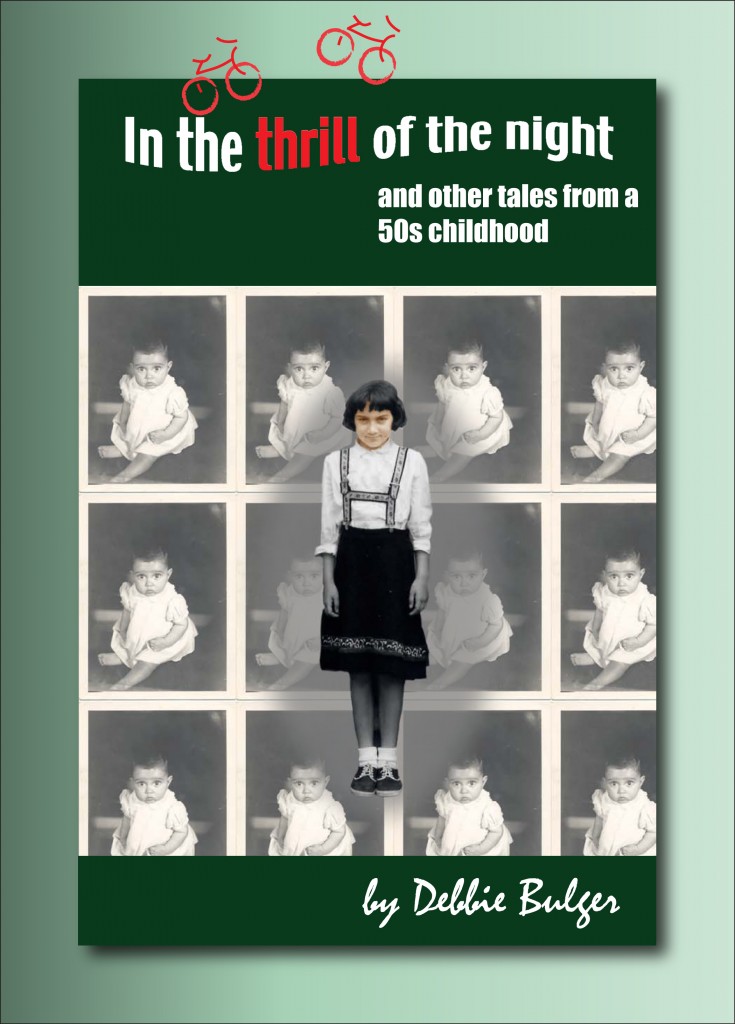In the thrill of the night by Debbie Bulger.
Opening this collection of vignettes about growing up in the 1950s is like unfastening the latch of a jewel box. Each essay is an exquisite gem, its facets reflecting the reader’s own childhood experiences and casting light on an earlier time.
If you remember going out to play without parental supervision, this book is for you. If you don’t remember that time and wonder about the freedom children used to have, this book will let you in on the secrets. If you can’t imagine how kids entertained themselves before video games and the internet, read this book.
Had David Sedaris been born female in the 1940s, he might have written these essays. In the thrill of the night, by Debbie Bulger captures the zest and zany-ness of growing up in 1950s America.
Baby boomers who previewed the essay collection by Bulger morphed from giving sought-after critical advice to scribbling comments in the margins such as “I remember those candies” and “Sweet memory, I loved those little flowers too.”
The vignette format makes this book accessible and easy to read. Readers are immersed in the viewpoint of an inquiring and active girl trying to keep up with older brothers. They are also treated to the special closeness of sisters. In the thrill of the night movingly touches upon the gender stereotypes of the 1940s and 1950s when girls were expected to play with dolls instead of footballs.
Early reviewers are captivated:
“This collection of Debbie’s essays is not only beautiful, and very touching, but the stories bridge that gap between reader and author that allows us all to see deep inside our own childhoods. Read them and weep, and laugh, and simply remember when.”
—Bruce Bratton, columnist and Bay Area personality
“In a series of succinct, delicious vignettes, Debbie Bulger’s In the thrill of the night introduces a memorable narrator whose tales of a 1950s childhood are at once unique and—for readers of a certain age—vividly recognizable. Bulger shows us what it was like to grow up the adventurous daughter of a young widow, the no-nonsense sister of larger-than-life boys, a Jewish kid in a predominantly Christian New England working-class town. Her smart, funny stories don’t take long to read, but they continue to provoke and amuse long after the book is closed.”
—Sarah Rabkin, author of What I Learned at Bug Camp: Essays on Finding a Home in the World
“I especially enjoyed the [essay] about learning Shakespeare on the fly.”
—Dan White, author of The Cactus Eaters

